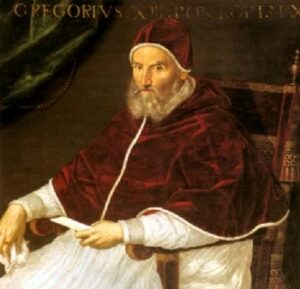
Of course, Pope Gregory XIII is best known for introducing the Gregorian Calendar in 1582, which sought to reform and replace the Julian Calendar which had been in use in Europe since 45BC. Many European countries did not introduce the new calendar in 1582 and Britain did not introduce it until 1752!
You can read all about the Gregorian Calendar in my article “The First Day of the Gregorian Calendar”.







